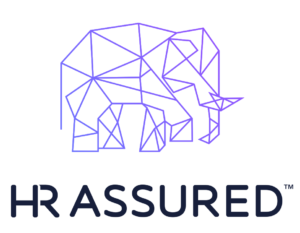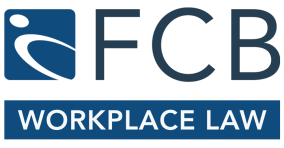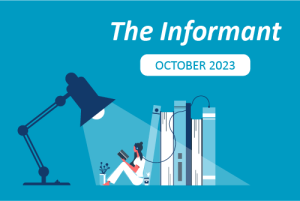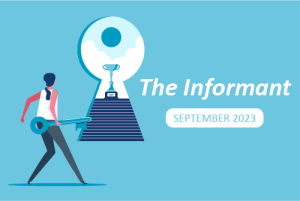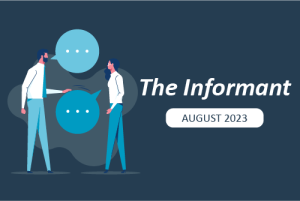I’m here to hear: R U OK?
September 14, 2023Today is R U OK? Day, recognised nationally as part of the R U OK? initiative.
R U OK?Day is recognised as a day of action where Australians are encouraged to ask, ‘are you OK?’ and start a meaningful conversation whenever they spot the signs that someone they care about might be struggling. In 2023, R U OK? is calling on all of us to let the people you care about know you’re here, to really hear them.
In this article, we share the warning signs of poor mental health in the workplace and how employers can proactively promote and support employee wellbeing.
Stop, look, and listen: what are the warning signs to look out for?
We spend much of our lives at work, and employers may be in one of the best positions to recognise the early warning signs of poor mental health. Such signs vary from person to person, but may include:
- Increased absenteeism or tardiness.
- Looking tired and seeming stressed.
- Having trouble concentrating, making decisions, and managing multiple tasks.
- Being unusually emotional and getting frustrated with people.
- Avoiding social activities.
- Outbursts and mood swings.
- Increased isolation including sitting alone at lunchtime.
- Unable to accept negative feedback.
- A change in personality or attitude.
How can employers support mental health?
Reduce the stigma: often the fear of stigma inhibits some employees from reaching out for the support they need. Mental health can be a difficult topic to bring up with an employer, so when an employer starts the conversation, this can lessen the stigma while raising awareness of the issue. R U OK? Day is a good excuse to show employees you’re willing to listen and provide support.
Unwind and unplug: for some employees, working from home can mean feeling ‘plugged in’ all the time, which can cause extra work-related stress. As an employer, encouraging your employees to switch off at the end of the day and try to go for a walk, spend time with family or purely just take time for themselves, can foster a stress-free environment, and promote a healthy work-life balance that ultimately benefits both the employees and the overall productivity of the business.
Communicate: a good leader will show initiative by instigating conversations to show empathy and provide mental health guidance. This could include encouraging regular group and individual catch-ups/check-ins (even if online), introducing initiatives to maintain employee morale such as social events, reward, and recognition programs with employee ‘perks’, and promoting a larger conversation about overall well-being. R U OK? Day is a great way to start these conversations naturally, with the overall aim of encouraging such discussions throughout the year.
Provide support: ensure your employees know where to access mental health support if they need it. Whether this is an Employee Assistance Program (EAP) hosted by your business, or one of the many free support services such as Lifeline, Beyond Blue, or Mensline, it’s important that you provide clear instructions for how employees can reach out for assistance.
If this article has raised any concerns for you or someone you know please contact these free support services:
- Lifeline – 13 11 14
- Beyond Blue – 1300 22 4636
- Mensline – 1300 78 99 78
- DV line – 1800RESPECT (1800 737 732)
If any of the information in this article has raised any questions and you need some workplace advice, please reach out to the team at FCB.
